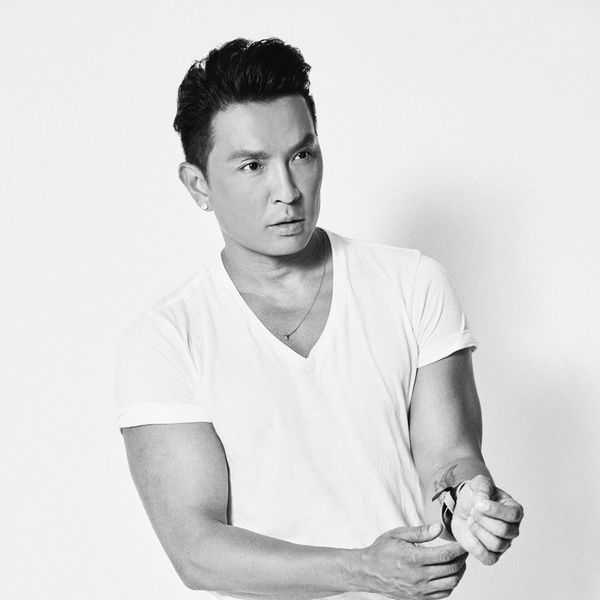
It’s a no-brainer, really. Getting enough sleep makes us healthier. It’s the gateway to feeling great and improving our well-being, and there’s no secret elixir to making this possible. It’s right there in front of us! So why do we still struggle to make solid sleep a priority?
Between our tech addictions (because Netflix has no chill and Instagram has no end), late-night email catch-ups (because “Inbox zero”), work travel and deadlines, and staying out past our bedtimes on a “school night” (because fashion week), getting enough z’s is challenging. But knowing how to sleep properly = adulting.
In honor of Sleep Awareness Week, the National Sleep Foundation’s annual event celebrating sleep health, we spoke with some experts on the matter. While media mogul Arianna Huffington is making strides with her book The Sleep Revolution, there’s still work to be done in the quest to make sleep quality the new normal.
We spoke with Sara DiVello, PR head turned yoga teacher and author of Where in the OM Am I?, about the importance of bedtime.
DiVello confesses: “I hate that it’s become culturally chic to pretend we don’t need sleep, that sleep somehow equates laziness, or that if you’re really a hard worker, an entrepreneur, or ‘hustling,’ you should pound back another cup of coffee, pull up your ‘big girl’ pants, and keep going. WRONG. That’s how you will become chronically exhausted, run-down, and sick. I’m able to hustle as much as I do because I prioritize sleep.”
Here’s why you should, too.
THE GOOD: BENEFITS OF SLEEP
I once heard a podcast featuring Shawn Stevenson, author of Sleep Smarter and creator of The Model Health Show. What he said forever changed my POV about sleep and fitness.
“Generally, being awake is catabolic (breaks you down) and sleep is anabolic (builds you up). Sleep is actually an elevated anabolic state, heightening the growth and rejuvenation of the immune, skeletal, and muscular systems. Basically, sleep rebuilds you and keeps you youthful. High-quality sleep fortifies your immune system, balances your hormones, boosts your metabolism, increases physical energy, and improves the function of your brain. With all the essential benefits that sleep is giving you, you will never, I repeat, NEVER, have the body and life you want without giving your body the right amount of sleep.”
There have been a lot of studies about the benefits of sleep—from increased immunity to staying fit.
DiVello agrees: “Think about a time when you got great sleep. Tune into how you felt physically and mentally. Did you feel energized? Happier? Readier to take on the world and all its challenges? Did you have more to give to family, friends, or work? It’s not in dispute that we all feel best when we’re fully, deeply rested. The challenge is making sleep a priority and giving ourselves permission to put it first.”
THE BAD: RISKS OF SLEEP DEPRIVATION
But DiVello didn’t always have this clarity when it came to sleep: “I started noticing the impact of sleep deprivation when I was working a high-stress, adrenaline-fueled, caffeine-guzzling PR job. In addition to the baseline stress, which caused anxiety, I traveled often, and the additional strain of changing time zones, waking up in a different hotel (and state!) every night, and not having access to good food and exercise (which is what keeps me grounded and functioning well at home) all combined to create severe insomnia.”
She noticed the effects of exhaustion immediately. “I felt light-headed, out of it, ungrounded. I had trouble staying focused (or caring!) in long meetings. All I could think about was sleep. I craved junk food—especially salty foods like chips—or sweets.”
We also spoke with Dr. Lauren Hazzouri, licensed psychologist, founder of HeyLauren.com, and strong advocate for sleep and how it ties into physical and mental health.
Dr. Hazzouri explains: “To get our bodies working like well-oiled machines, we need to eat healthfully, exercise regularly, and get enough restful sleep each night. While we are often educated on the importance of healthy eating and exercise, and making those lifestyle changes is both en vogue and reinforced when we look amazing in our skinny jeans, the importance of sleep often gets lost in the shuffle.”
To the part of you who values those skinny jeans: “Research tells us that poor sleep patterns can increase cortisol levels (which causes weight gain, especially in the abs and tummy), insulin secretion and ghrelin (aka the hunger hormone). Simultaneously, it decreases levels of leptin, a hormone that alerts our brains when it’s had enough food. The result? Weight gain and an increase in diabetes risk factors. Sleep deprivation also affects physical performance, killing your chances of getting a good workout no matter how hard you try.”
Now, to the part of you who values career #goals and good moods, Dr. Hazzouri continues: “Sleep plays a role in cognitive function, aiding in repair, restoration, and memory. So if you’re not sleeping enough, crushing that presentation is out of the question, regardless of the amount of blood, sweat, tears, and time you put in preparing. Finally, researchers explain that there is a significant correlation between sleep and mood, stating that people who aren’t getting enough sleep report irritability and too little energy to take care of daily responsibilities—and that just won’t do.”
THE (SN)UGLY: HOW MUCH SLEEP DO YOU NEED?
DiVello weighs in: “There is no magical number that works like a charm for everyone. Additionally, each person’s needs will vary based on what’s going on that day/week in their life. If you work a 15-hour day, guess what? You’re going to need more sleep. If you do something physically strenuous, you’ll need more sleep. But the truly courageous thing is to get in touch with what YOU need, and prioritize that. It’s a radical act of self-care, and it’s hard to do—but it’s necessary.”
If you truly have no idea how much sleep you need, see how much you sleep with blackout curtains, white noise, and no alarm. A lot of people try this on vacation just to get a baseline.
Oh, and one more thing: Don’t let anyone shame you for needing your beauty sleep or a nap (remember how Bachelor contestant Corinne was nationally shamed for napping?).
DiVello is also pro-napping. “I am pro-sleep, in whatever way people can get it. I advocate people tuning in to their unique needs, asking what their bodies need in any given moment, and providing it. Every body is different. And everyone’s needs will differ based on any number of external factors... It’s about staying grounded, present, and honest with yourself.”
To develop a solid sleep ritual RN, read Arianna Huffington’s tips on How to Fall Asleep Faster.
Want more stories like this?
This Bedtime Routine *Always* Gets me to Sleep Fast
The 9 Best Things You Can Do for a More Restful Sleep
How to Fall Asleep Faster




